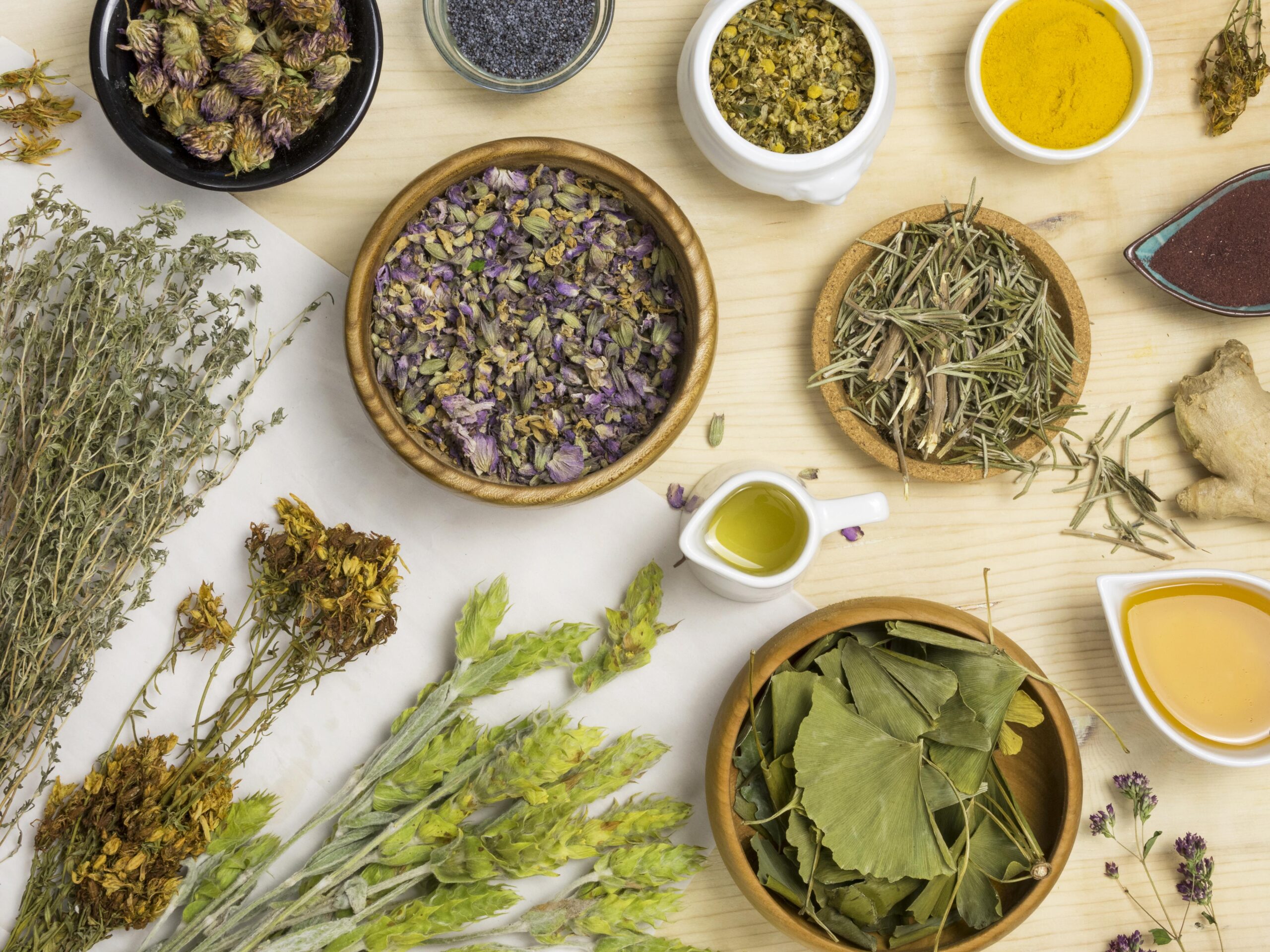Introduction To Ayurveda
Ayurveda is a comprehensive arrangement of medication that started in old India quite a long time back. “Ayurveda” is gotten from Sanskrit, where “Ayur” signifies life and “Veda” signifies information or science. Accordingly, Ayurveda means “the study of life.”
At its core, Ayurveda expects to advance wellbeing and prosperity by adjusting the body, brain, and soul. It sees every individual as a remarkable blend of the five components – ether, air, fire, water, and earth – known as doshas. The three essential doshas are Vata (ether and air), Pitta (fire and water), and Kapha (water and earth), and Ayurveda tries to keep up with agreement among these doshas for ideal wellbeing.
Ayurvedic Herbs
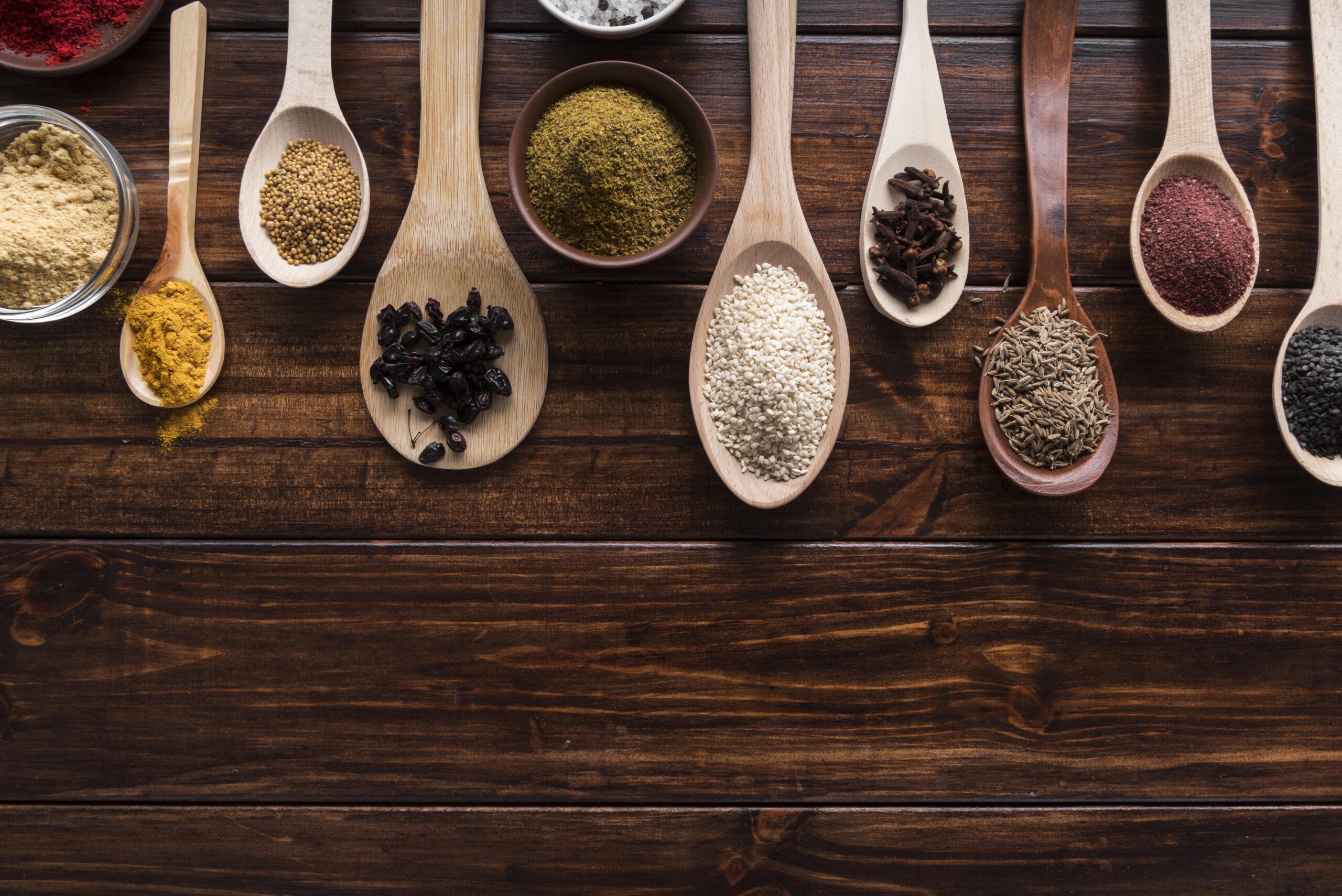
Ayurvedic herbs have been prized for a really long time as nature’s gifts, offering all encompassing solutions for different wellbeing concerns. Established in old insight and normal recuperating standards, these herbs structure a vital piece of Ayurveda, a comprehensive medical care framework starting from India. From upgrading invulnerability to advancing by and large prosperity, Ayurvedic herbs are worshipped for their helpful properties and delicate yet successful way to deal with wellbeing. In this investigation, we dig into the effortlessness and significant recuperating capability of Ayurvedic herbs, opening nature’s abundance for a reasonable and amicable life.
Ayurvedic herbs have traversed centuries, their efficacy and healing properties documented in ancient texts such as the Charaka Samhita and Sushruta Samhita. Rooted in the profound understanding of the doshas – Vata, Pitta, and Kapha – Ayurvedic herbs are tailored to restore balance, address ailments, and nurture vitality in accordance with individual constitutions.
Understanding Immunity In Ayurveda
Understanding immunity in Ayurveda includes an all encompassing methodology that thinks about the interconnectedness of the body, mind, and soul in keeping up with ideal wellbeing. In Ayurveda, insusceptibility isn’t simply the capacity to oppose sicknesses but at the same time is connected to in general essentialness, flexibility, and the body’s ability to adjust to inward and outside stressors.
-
Concept of Ojas:
In Ayurveda, Ojas is viewed as the substance of immunity and essentialness. An unobtrusive substance addresses the body’s ideal wellbeing and insusceptibility. Ojas is affected by variables like eating routine, way of life, profound equilibrium, and otherworldly prosperity.
-
Agni (Stomach related):
Areas of strength for fire, known as Agni, is essential for keeping a vigorous invulnerable framework. Legitimate processing guarantees the ingestion of supplements, end of poisons, and the development of solid real tissues, all of which add to invulnerability.
-
Role of Doshas:
Ayurveda perceives three essential doshas – Vata, Pitta, and Kapha – which oversee different physiological and mental capabilities. An equilibrium of these doshas is fundamental for ideal insusceptible capability. Awkward nature, for example, extreme Vata causing dryness or overabundance Kapha prompting blockage, can think twice about.
-
Ama (Toxins):
The gathering of Ama, or toxins, in the body is accepted to impair immunity. Ama is the consequence of fragmented processing and digestion, prompting a development of side-effects that can obstruct channels and disturb the body’s normal capabilities.
-
Rasayana Therapy:
Ayurveda utilizes Rasayana treatments to enhance immunity and revive the body. Rasayanas are home grown details or practices that advance imperativeness, cell recovery, and life span. They assist with reinforcing Ojas and help resistant flexibility.
-
Adaptogens and Immunomodulators:
Ayurvedic herbs like Ashwagandha, Tulsi, Amalaki, and Guduchi are named adaptogens and immunomodulators. They assist the body with adjusting to pressure, upgrade resistant reaction, and reestablish harmony to the doshas, supporting in general insusceptibility.
-
Diet and Lifestyle :
Ayurveda stresses the job of diet and way of life in keeping up with resistant wellbeing. Eating occasional, feeding food sources, following day to day schedules (Dinacharya), rehearsing yoga and contemplation, getting sufficient rest, and overseeing pressure are fundamental for supporting resistance.
By understanding these principles of immunity in Ayurveda, people can take on all encompassing ways to deal with advance safe wellbeing, forestall sicknesses, and accomplish in overall well being.
Key Ayurvedic Herbs For Immunity
Ayurveda offers a treasure trove of herbs known for their immune boosting properties. Here are some key Ayurvedic herbs for immunity :
Ashwagandha
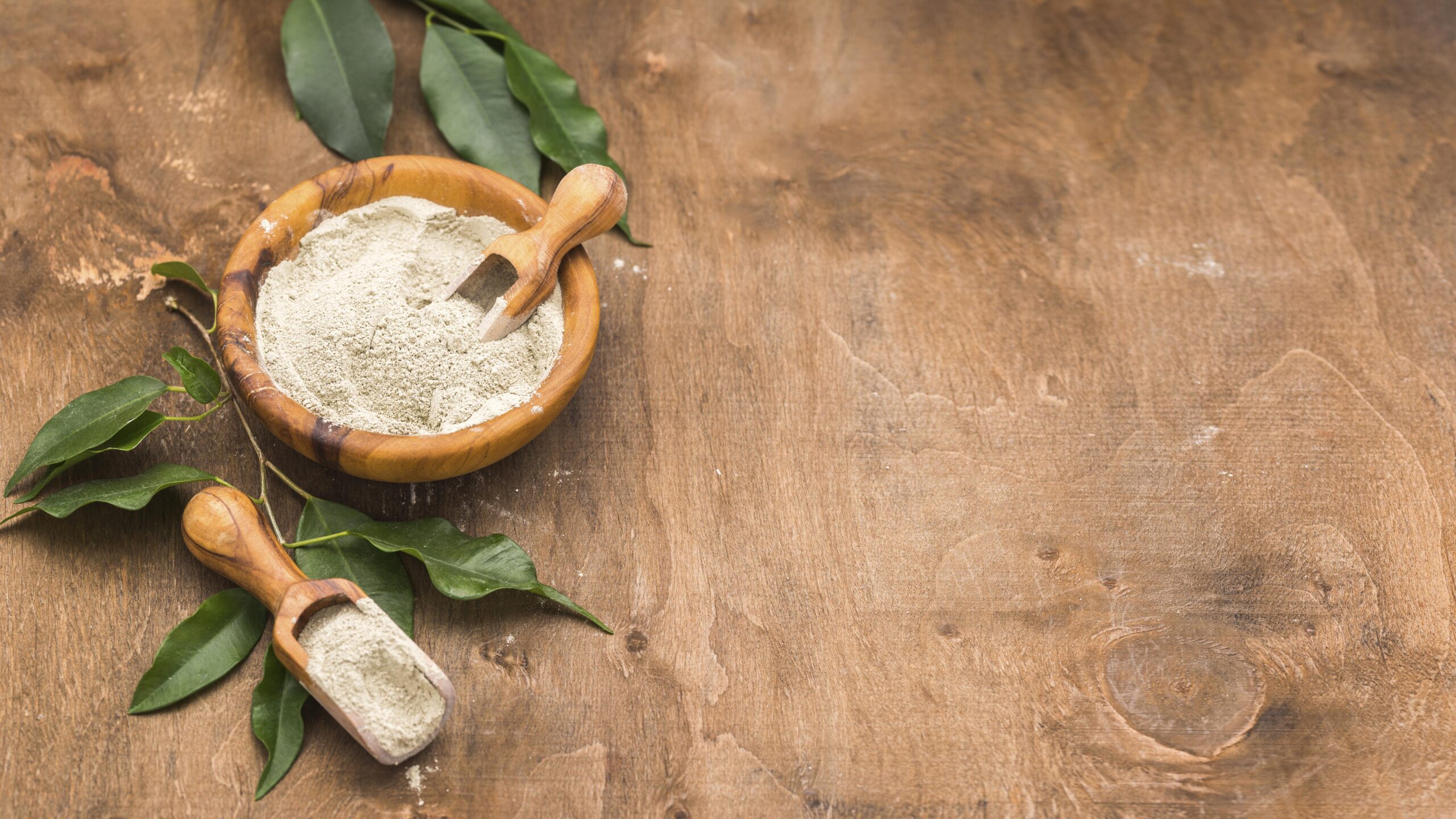
Ashwagandha, scientifically known as Withania somnifera, is a powerful medicinal herb deeply rooted in traditional Ayurvedic medicine. Revered for centuries in India and other parts of Asia, ashwagandha is renowned for its adaptogenic properties, which help the body adapt to stress and promote overall well-being.
It is often referred to as the “Indian ginseng” due to its rejuvenating and revitalizing effects on the body and mind. Ashwagandha offers a plethora of health benefits, including reducing stress and anxiety, improving cognitive function, boosting energy levels, supporting immune function, and enhancing athletic performance.
- Supports a healthy immune system.
- Works on mental capability and memory.
- Enhances endurance and physical performance.
- Supports adrenal organ capability.
- Helps in lessening tension and advancing unwinding.
- Supports hormone balance and reproductive wellbeing.
- Displays calming and cell reinforcement properties.
- Adaptogenic properties assist the body with overseeing pressure.
- Helps energy levels and in general essentialness.
Recommended dosage :
-
Powder:
1-2 grams (approximately ½ to 1 teaspoon) of ashwagandha powder per day for general well-being.
-
Capsules/Tablets:
Follow the dosage instructions provided on the product label. This may range from 300-500 mg per capsule, taken 1-2 times daily.
Tulsi
Tulsi, also known as Holy Basil, is a medicinal herb that has been used for centuries in Ayurvedic medicine for its various health benefits. It is considered a sacred plant in Hinduism and is often grown around homes and temples. The health benefits of Tulsi are :
- Enhances immune system function and helps fight infections.
- Rich in antioxidants that protect against free radicals and oxidative stress.
- Respiratory Support
- Digestive Aid
- Stress Relief
- Anti-inflammatory
- Heart Health
- Improves cognitive function, memory, and mental alertness.
- Hormones Balance
Recommended Dosage:
-
Dried Herb:
1-2 teaspoons of dried tulsi leaves steeped in hot water to make tea, consumed 1-2 times daily.
-
Tulsi Extract:
Follow the dosage instructions on the product label if using a liquid extract or tincture. Generally, this may range from 10-30 drops, 1-3 times daily.
Turmeric
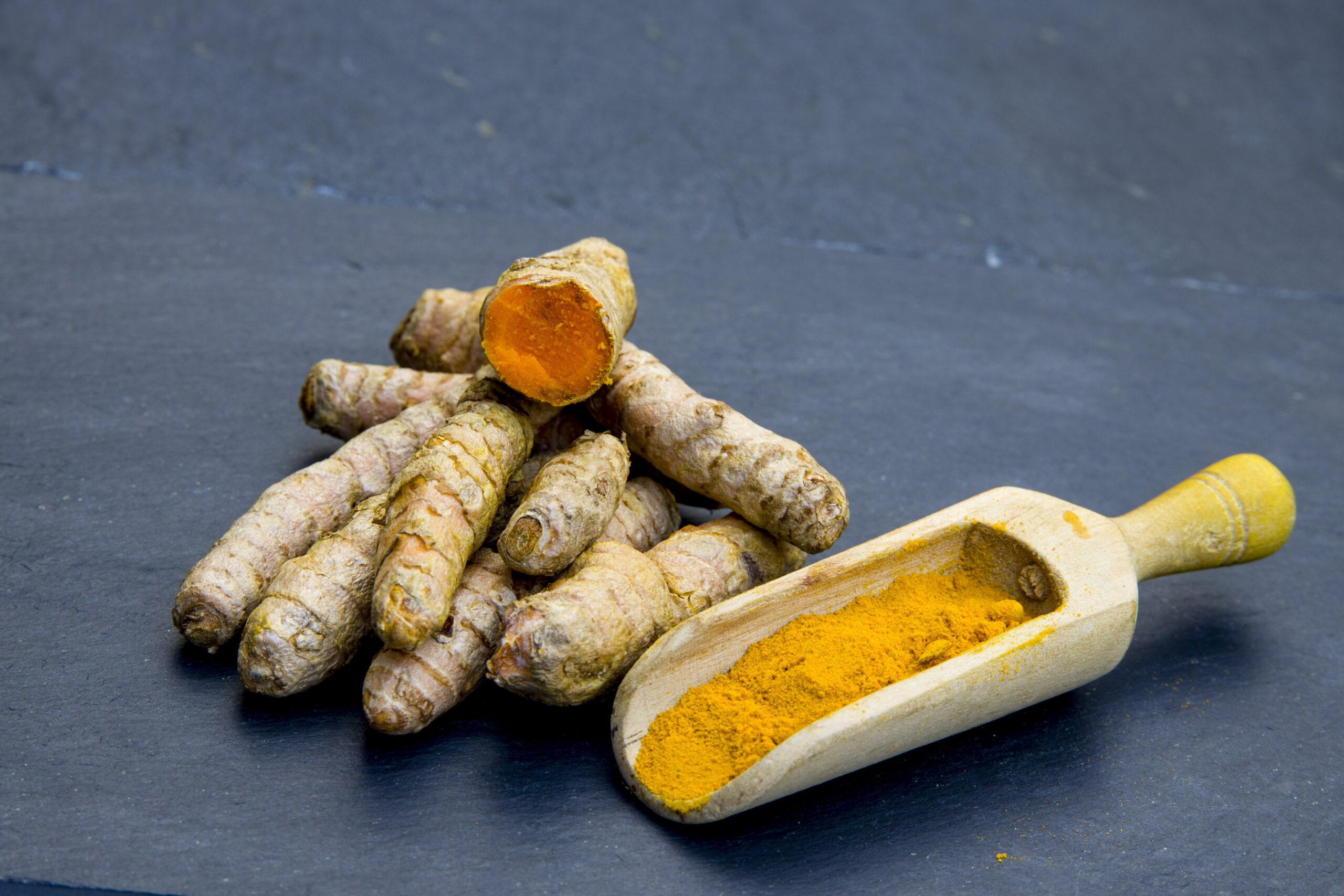
Turmeric, scientifically known as Curcuma longa, is a spice that has been used for centuries in traditional medicine and culinary practices. It is characterized by its bright yellow color and earthy flavor. The active compound in turmeric, curcumin, is well-known for its anti-inflammatory and antioxidant properties.
In Ayurveda, turmeric is viewed as a powerful spice that upholds by and large prosperity, helps processing, advances solid skin, and helps in overseeing different sicknesses. Its mitigating impacts make it helpful for easing joint agony, joint inflammation, and aggravation related conditions. Turmeric is additionally utilized in skincare to light up composition, decrease skin inflammation, and further develop skin wellbeing. Consumed as a flavor in cooking or taken as an enhancement, turmeric keeps on being an important normal cure embraced for its comprehensive mending properties and remedial potential.
Here are some health benefits of Turmeric :
- Antioxidant Power
- Digestive Aid
- Heart Health
- Immune Boost
- Skin Health
- Anti-cancer potential
- Mental Clarity
- Liver Support
Recommended Dosage :
-
Powder:
1-3 grams (approximately ½ to 1 teaspoon) of turmeric powder per day is commonly recommended for general health benefits.
-
Curcumin Extract:
If using a standardized curcumin extract, follow the dosage instructions provided on the product label. Typically, this may range from 500-1000 mg per day.
Shatavari (Asparagus racemosus)
Shatavari (Asparagus racemosus) is a revered herb in Ayurveda known for its numerous health benefits.
- Support Reproductive Health in Women
- Hormonal Health
- Menopause Support
- Digestive Aid
- Immune Boost
- Support Healthy Aging
- Stress Relief
- Detoxification
Recommended Dosage:
-
Powder:
Typically, 1-2 grams of Shatavari powder can be taken daily. It can be mixed with warm water, milk, or added to smoothies.
-
Capsules/Tablets:
Follow the dosage instructions provided on the product packaging. Usually, 500-1000 mg capsules/tablets are taken 1-2 times a day with meals.
Amla (Indian Gooseberry)
Amla, also known as Indian gooseberry, is a fruit that comes from the Indian subcontinent. It has been used in traditional Ayurvedic medicine for centuries due to its various health benefits. The scientific name for amla is Phyllanthus emblica. Here are some health benefits of Amla :
- Richest Source Of Vitamin C
- Antioxidant Power
- Digestive Aid
- Skin Care
- Hair Care
- Heart Wellbeing
- Weight Management
- Immunity Booster
- Liver Wellbeing
- Anti- Aging Properties
Recommended Dosage :
-
Fresh Amalaki Fruit:
Consuming 1-2 fresh Amalaki fruits daily is a traditional way to enjoy its benefits. The fruit can be eaten raw, juiced, or added to smoothies.
-
Amalaki Powder:
1-2 grams (approximately ¼ to ½ teaspoon) of Amalaki powder per day can be taken with water or added to meals.
-
Capsules/Tablets:
Follow the dosage instructions provided on the product label if using Amalaki capsules or tablets. Typically, this may range from 500-1000 mg per capsule, taken 1-2 times daily with meals.
Neem (Azadirachta indica)
Neem (Azadirachta indica) is a tree native to the Indian subcontinent and is commonly referred to as the “Indian lilac.” It has been used in traditional medicine, particularly Ayurveda, for centuries due to its various medicinal properties. Neem oil can be diluted with a carrier oil (such as coconut oil) and applied to the skin for addressing skin conditions like acne, eczema, or fungal infections. Nearly every part of the neem tree—leaves, bark, seeds, and oil—has therapeutic uses. Here are some important health benefits of neem :
- Blood Sugar Control
- Skin Health
- Dental Wellbeing
- Immune Support
- Liver Health
- Antioxidant Properties
- Anti-inflammatory Properties
- Hair Care
Recommended Dosage :
-
Neem Leaf or Powder:
1-2 teaspoons of neem leaf powder or crushed neem leaves can be taken daily. It can be mixed with water, juice, or added to smoothies.
-
Neem Capsules/Tablets:
Follow the dosage instructions provided on the product label. Generally, this may range from 500-1000 mg per capsule, taken 1-2 times daily with meals.
Guduchi (Tinospora cordifolia)
Guduchi, scientifically known as Tinospora cordifolia, is a versatile herb extensively used in Ayurvedic medicine. Also known as Giloy or Amrita (meaning “immortality” in Sanskrit), Guduchi is renowned for its wide range of health benefits and therapeutic properties.
In Ayurveda, Guduchi is classified as a Rasayana herb, which means it is considered rejuvenating and promotes longevity. It is known for its adaptogenic, immunomodulatory, antioxidant, anti-inflammatory, and detoxifying properties. Here are some health benefits of Guduchi :
- Immunity Booster
- Antioxidant Properties
- Liver Health
- Anti-Imflammatory
- Fever Reduction
- Respiratory Support
- Rejuvenation
- Liver Wellbeing
Recommended Dosage:
-
Guduchi Powder:
For general well-being: 1-3 grams of Guduchi powder per day, taken with water, milk, or honey.
For therapeutic use: Up to 6 grams per day, divided into smaller doses as recommended by a healthcare provider.
-
Guduchi Capsules/Tablets:
Follow the dosage instructions provided on the product label. Generally, this may range from 250-500 mg per capsule, taken 1-2 times daily with meals.
For specific health concerns or therapeutic use, higher doses may be recommended under professional guidance.
Decoction (Guduchi Tea)
A decoction is a method of extracting the active compounds and medicinal properties from herbs, roots, or plant materials by simmering them in water over a period of time. Guduchi tea, also known as Guduchi decoction, is a type of herbal tea made from the stems or powder of the Guduchi plant (Tinospora cordifolia). Here are some health benefits of Decoction :
- Digestive Aid
- Fever Reduction
- Respiratory Support
- Antioxidant Properties
- Skin Health
- Immune support
Green Tea
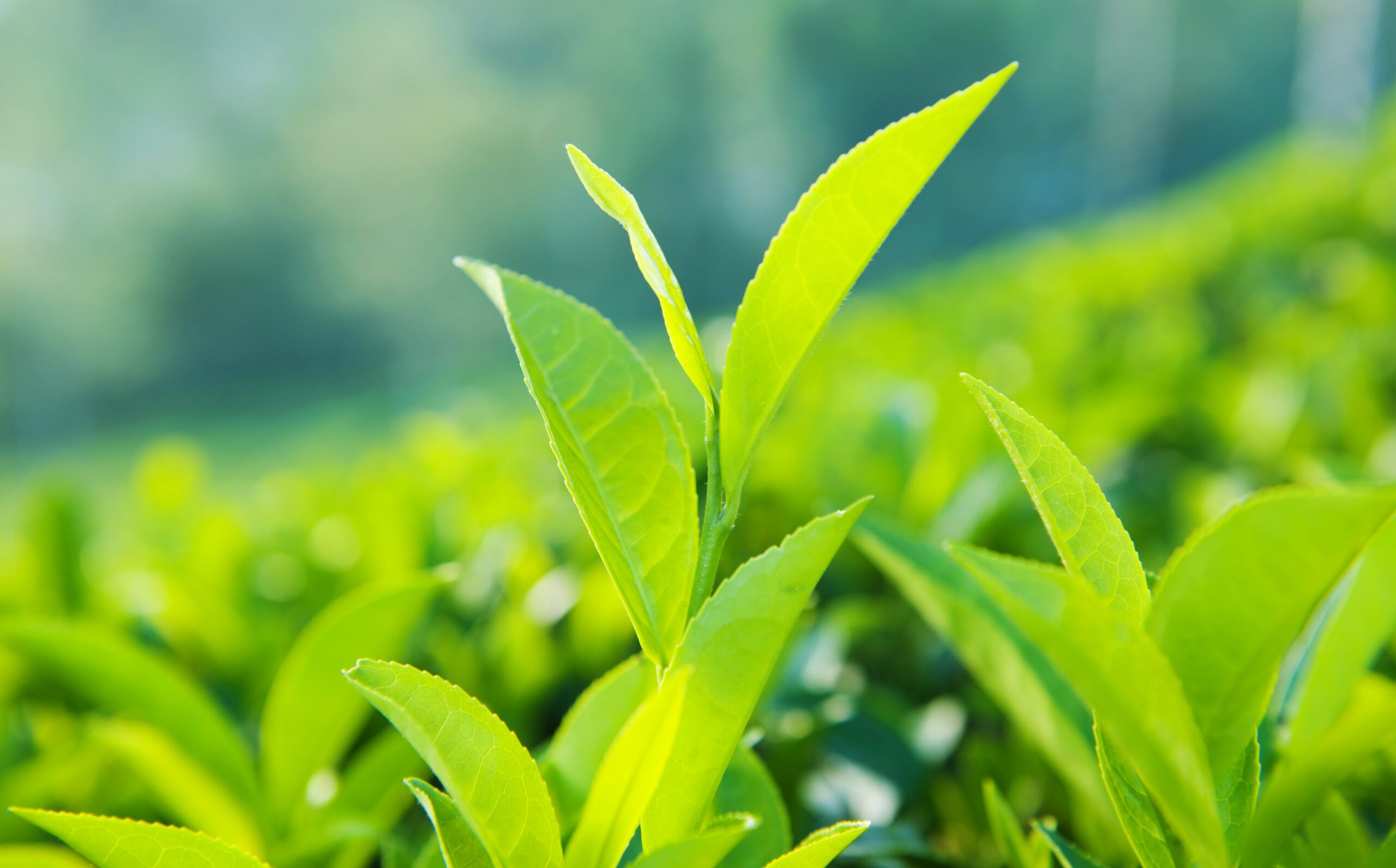
In recent years, it has also gained popularity as a health drink. This includes potent antioxidants called catechins, which may help protect against cancer and drinking green tea may even help you lose weight. green tea has been associated with improved brain function and cognitive health, thanks to its caffeine content and the amino acid L-theanine, which work synergistically to enhance alertness and concentration while promoting relaxation. Moreover, green tea’s antioxidant properties may help protect against oxidative stress and inflammation, potentially reducing the risk of chronic diseases such as cancer and diabetes. Regular consumption of green tea has also been linked to weight management and metabolic health, as it can boost metabolism and aid in fat oxidation.
- Ingredients:
- Green tea leaves (1 teaspoon per cup)
- Water
- Boil Water:
- Bring fresh, filtered water to a boil in a kettle or pot.
- Cool Water:
- Allow the boiled water to cool slightly for about 1-2 minutes. Green tea is delicate, and using water that’s too hot can result in a bitter taste.
- Prepare Tea Leaves:
- Measure out 1 teaspoon of green tea leaves per cup of water.
- Place Tea Leaves:
- Place the green tea leaves in a teapot, mug, or infuser basket.
- Pour Water:
- Pour the hot water over the green tea leaves.
- Steep:
- Allow the green tea leaves to steep in the hot water for about 2-3 minutes. Steeping time can vary depending on the desired strength of the tea and personal preference.
- Strain (Optional):
- If using loose leaf tea, strain the tea to remove the leaves before serving.
- If using tea bags, simply remove the tea bags from the water.
- Serve:
- Pour the green tea into cups or mugs.
Practical Tips For Immune Wellness
-
Natural Teas and Imbuements:
Incorporate safe supporting flavors like Tulsi, Amla, and Turmeric into local teas or combinations for regular use.
-
Brilliant Glue:
Make a Splendid Paste with Turmeric, dull pepper, and coconut oil to furnish curcumin’s immune further developing benefits.
-
Everyday Enhancement :
Consider Ayurvedic supplements or Rasayanas containing a blend of safe aiding flavors for intensive assistance.
-
Ayurvedic Diet :
Embrace an Ayurvedic diet well off in safe aiding food sources, flavors, and local game plans modified to your dosha constitution.
-
Way of life Practices:
Develop way of life practices like yoga, reflection, sufficient rest, and stress the board to support comprehensive prosperity and invulnerable strength.
Conclusion
Ayurvedic herbs offer an all encompassing way to deal with supporting resistant wellbeing by tending to different parts of prosperity. Spices like Ashwagandha, Tulsi, Amalaki, Guduchi, and Turmeric are wealthy in cancer prevention agents, adaptogens, and immunomodulatory intensifies that fortify the safe framework, diminish irritation, and advance generally speaking essentialness.
The synergistic impacts of these herbs add to upgraded resistant reaction, further developed versatility against contaminations, and better generally speaking wellbeing results. Integrating Ayurvedic herbs into everyday health schedules, close by a decent eating regimen, satisfactory rest, and stress the executives rehearses, can uphold insusceptible capability and advance long haul prosperity.
Frequently Asked Questions

-
Which Ayurvedic herbs are best for boosting immunity ?
Herbs like Ashwagandha, Tulsi, Amalaki, Guduchi, and Turmeric are famous for their immune boosting properties.
-
How do Ayurvedic herbs reinforce the immune system?
They contain cell reinforcements, immunomodulatory compounds, and adaptogens that improve insusceptible reaction and decrease irritation.
-
Can Ayurvedic herbs prevent infections like colds and flu?
While they can support immune capability, they may not completely prevent contaminations. They help the body’s natural defense mechanisms .
-
Are Ayurvedic herbs ok for everyday use?
When used appropriately and in suggested doses, Ayurvedic herbs are generally safe.
-
Can Ayurvedic herbs at any point be utilized by pregnant ladies or kids?
It’s best for pregnant ladies, youngsters, and people with explicit medical issue to talk with a healthcare provider prior to utilizing Ayurvedic herbs .
-
How long does it take to see results from Ayurvedic herbs for immunity?
Results may vary based on individual factors. Consistent use over time, alongside a healthy lifestyle, can lead to improved immune function.
-
Are Ayurvedic herbs effective against viral infections?
While they might support immune response, explicit antiviral impacts might differ. They are frequently utilized as a component of comprehensive ways to deal with viral diseases.
Reference Blog:https://www.dabur.com/blog/health-guides/ayurvedic-tips-improve-immunity
Read More: https://yogayurvedaa.com/how-to-get-glowing-skin-with-ayurveda/
